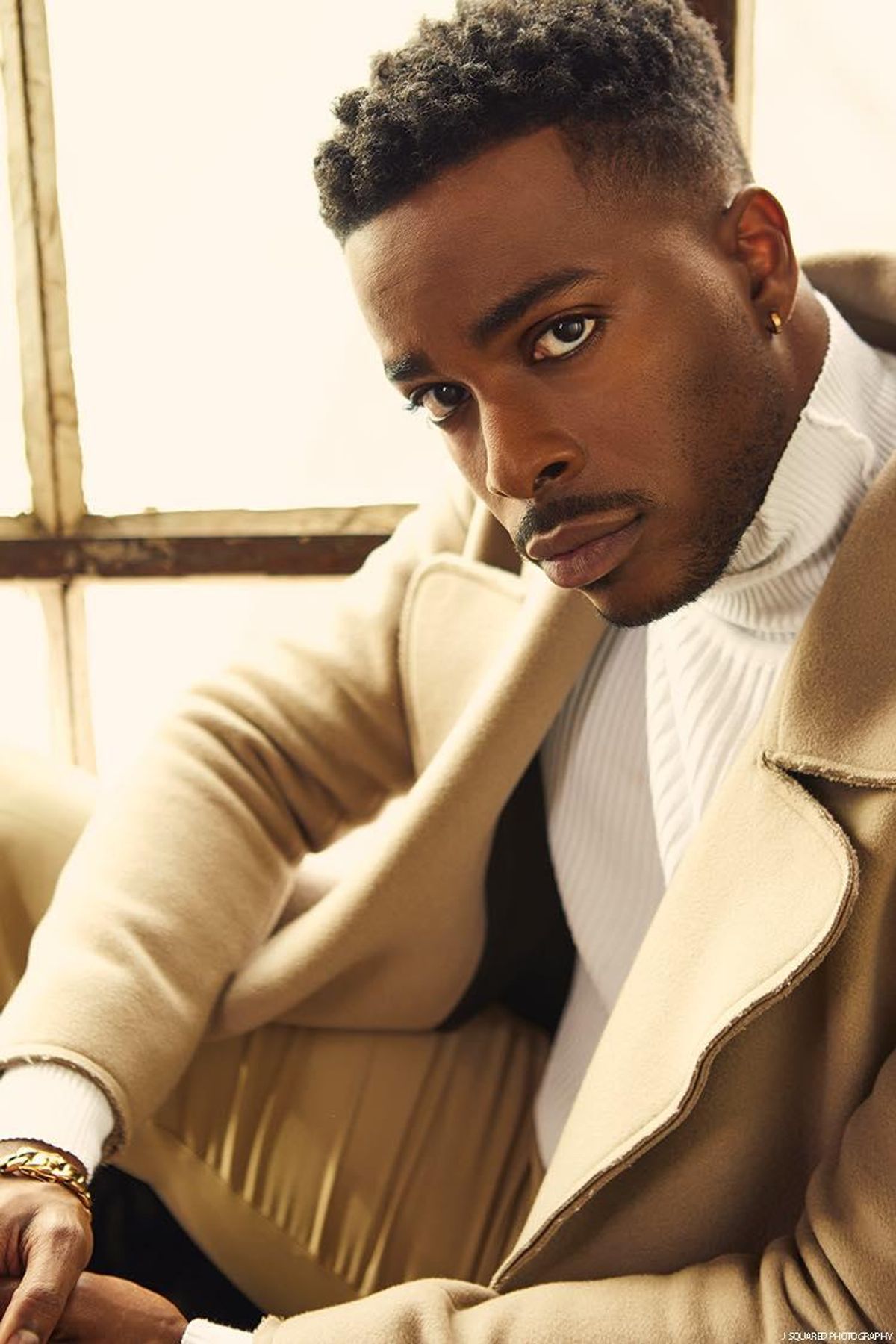In A Madea Homecoming, the latest installment in Tyler Perry's Madeafranchise, the family celebrates Madea's great-grandson's college graduation. Enter Brandon Black as the valedictorian and star of the celebration, Tim, who plans to use the event to come out to his entire family. As in every other Madea film, it doesn't take long for shenanigans and drama to make what should be an easy celebration something much more complicated, but not the way you might expect from a coming-out story.
Tim is the first clearly queer character in the Madea franchise, and Black hopes his story may ease younger audiences' fears about coming out. "I want them to know that more than trying to appease your family, you got to be yourself," says the actor, who is gay. "You might be surprised as to what your family does when they receive who you actually are."
Spoilers ahead for those who haven't watched the film, but happily for Tim, his coming-out falls flat when all his relatives tell him they already knew and that they were waiting for him to gather the strength to tell them. While viewers might go into A Madea Homecoming expecting some queer family drama, it turns out it's a safe space for Tim thanks to his accepting family. "I want to feel like people like me, they can see themselves in something that's not always so heavy. I want to do heavy dark stuff -- and I have some other stuff later coming out that's a little bit more of that. But it's not always a tragedy, you know?"
Black makes a point. Historically speaking, queer storylines in TV and film tend to give LGBTQ+ characters happily-never-after endings. It's often rife with death, breakups, or loss. Readers familiar with this pattern will know it as the "bury your gays" trope, where shows like Buffy the Vampire Slayer and The 100 are famous for killing off the only LGBTQ+ characters for the sake of the (straight) drama. In terms of queer storytelling, A Madea Homecoming's choice to let its gay character be gay without any sort of repercussion or fallout is refreshing.
While some viewers may crave more queerness in the film, the choice to not make a big deal out of Tim's coming- out furthers the idea that gayness does not have to be one's center, entire personality, or the crux of a movie or TV show.
"There's all kinds of stuff going on. [Just like in life] you're not just gay," Black says. "You're gay, you're Black, you are a young person coming up in today's times. You're all these things, and they all mix. You're never just one thing. And I think that this movie did a good job of that."
A Madea Homecoming also does a great job of breaking down stereotypes when it comes to queer Black roles. Gone (for the most part) are the days when those characters were depicted as flamboyant or whitewashed to accommodate tropes Hollywood has perpetuated for decades. In the vein of more progressive representation, Tim doesn't fit the mold that he might once have been forced into if his character were in the first Tyler Perry en femme Madea movie (2005's Diary of a Mad Black Woman).
"I feel like in the past, it may have been a bit limited. If you were going to be queer and Black, you needed to maybe be one specific way to [take up that] space," Black says. "And then all the guys [who checked those boxes] are all climbing over each other for that one role." Today, Black has a lot more opportunities because of filmmakers like Perry who are expanding the conversation of what it means to be queer and Black.
"I have a few friends who are in the same category -- gay Black actors who have stuff coming out," he says. "I'm so excited to see that they're the head of the show. If we're going to see this on, you know, network television or Netflix, that's going to create room for more [roles of that kind]. This movie, for me, is coming out of the perfect time to be my billboard, to say like you should put me in your next thing and it doesn't have to be a gay role. I want to play everything that I'm right for the way straight people play everything that they're right for."
In the end, A Madea Homecoming is more than just Perry's first Madea movie with a gay main character. It's breaking down barriers and redefining expectations of what it means to be queer and Black while serving as a reminder that those identities don't define everything about a person. Now, if only Tim would get a boyfriend in the next film.
This story is part of The Advocate's 2022 Entertainment Issue, which is out on newsstands April 2. To get your own copy directly, support queer media and subscribe -- or download yours for Amazon, Kindle, Nook, or Apple News.













































































Fans thirsting over Chris Colfer's sexy new muscles for Coachella